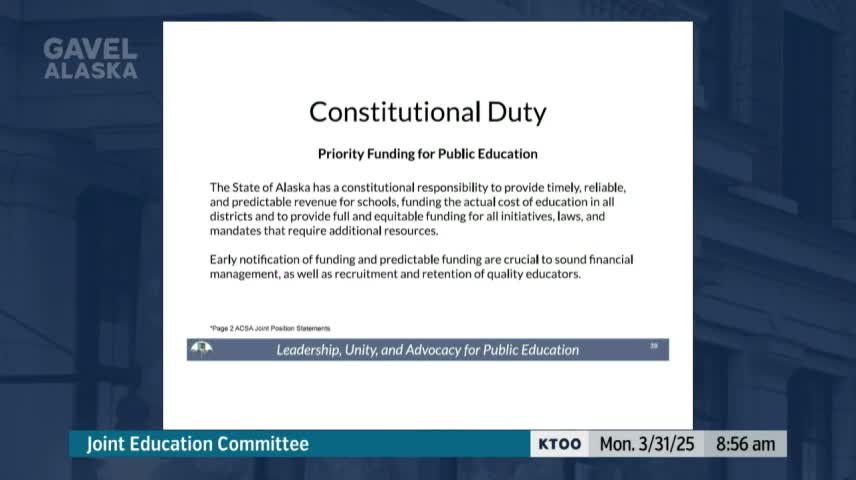Article not found
This article is no longer available. But don't worry—we've gathered other articles that discuss the same topic.
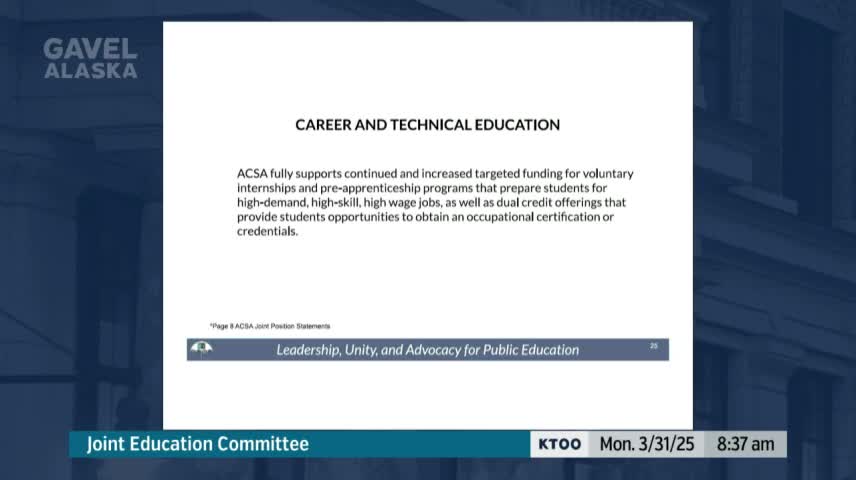
Principals praise CTE for engagement and workforce pathways; urge continued support
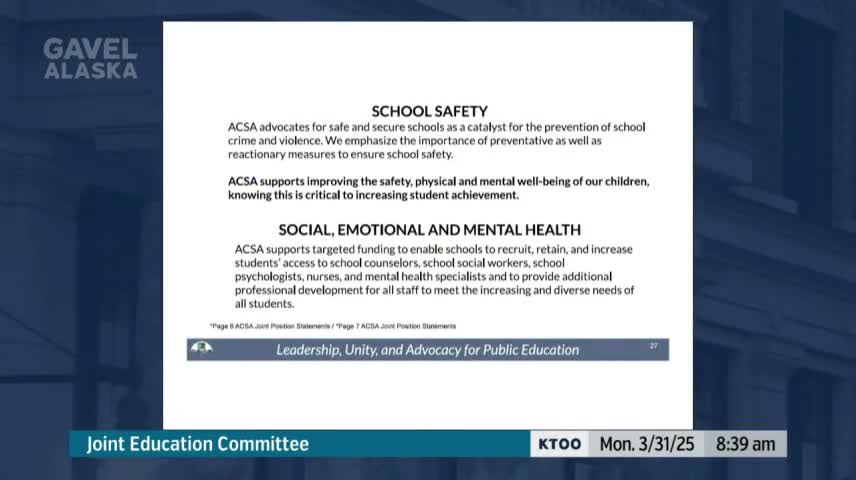
Principals warn rising youth mental‑health needs and counselor shortages are harming learning
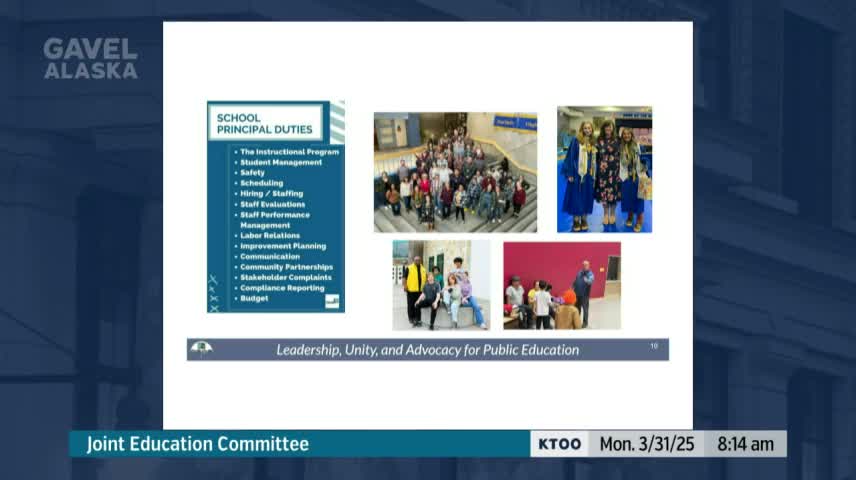
Principals urge full pre‑K funding and fidelity to Alaska Reads Act to improve early literacy
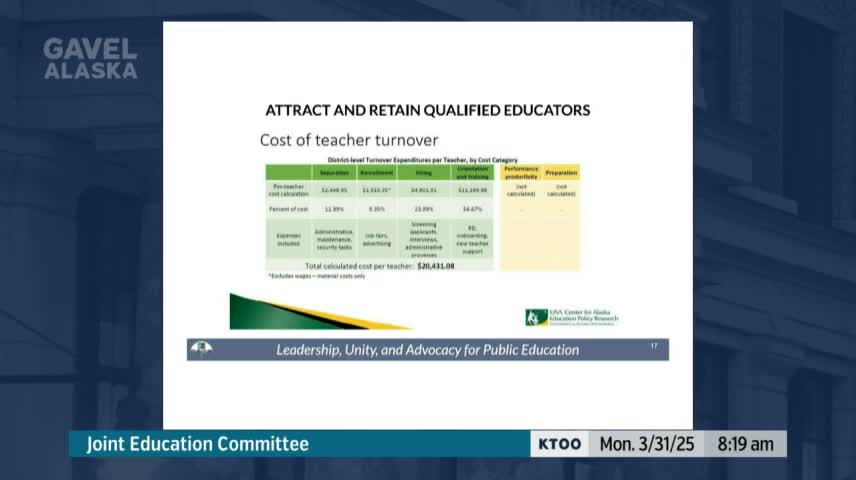
Alaska educators cite retirements, pension gaps and turnover costs in statewide retention crisis
